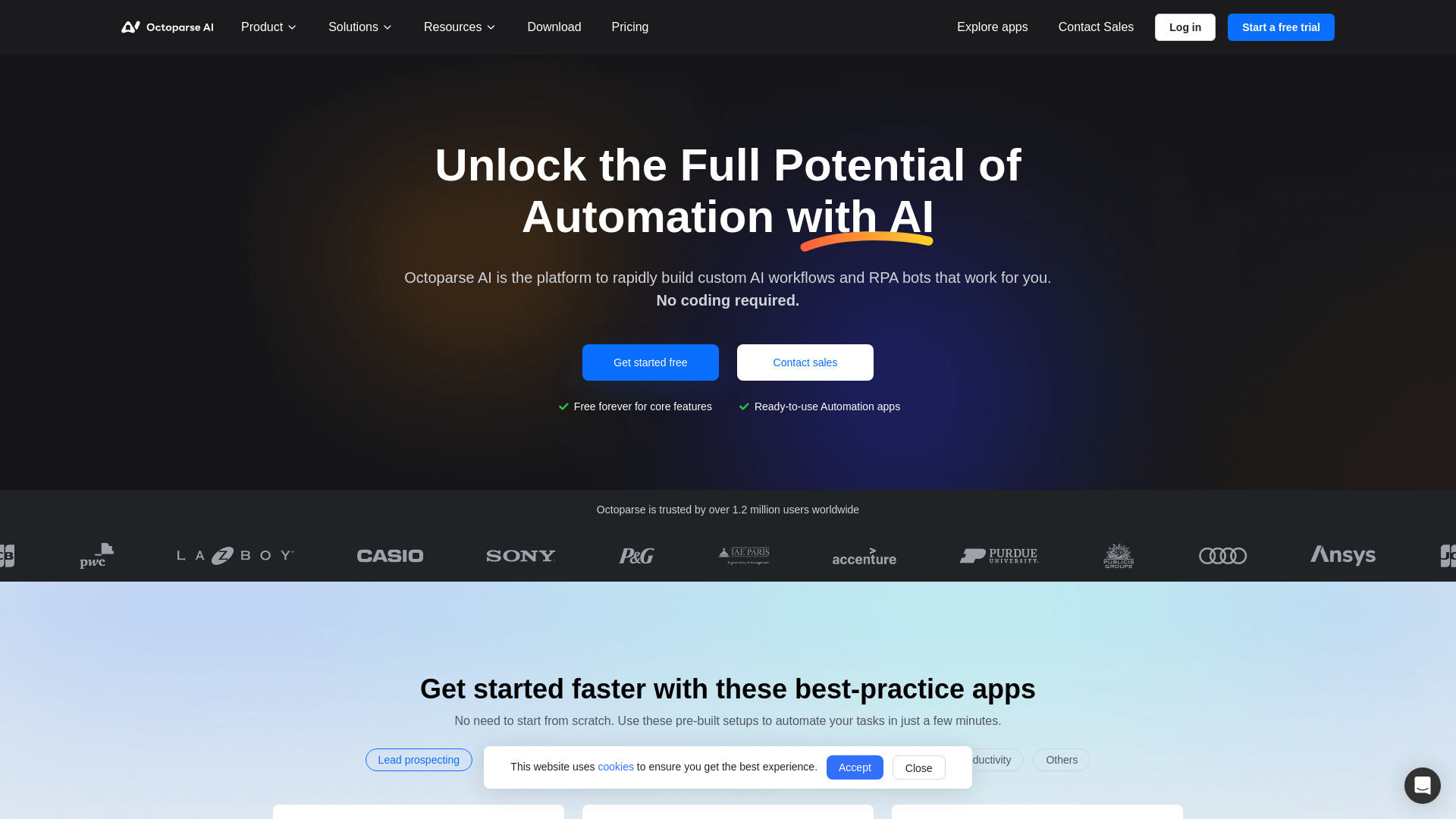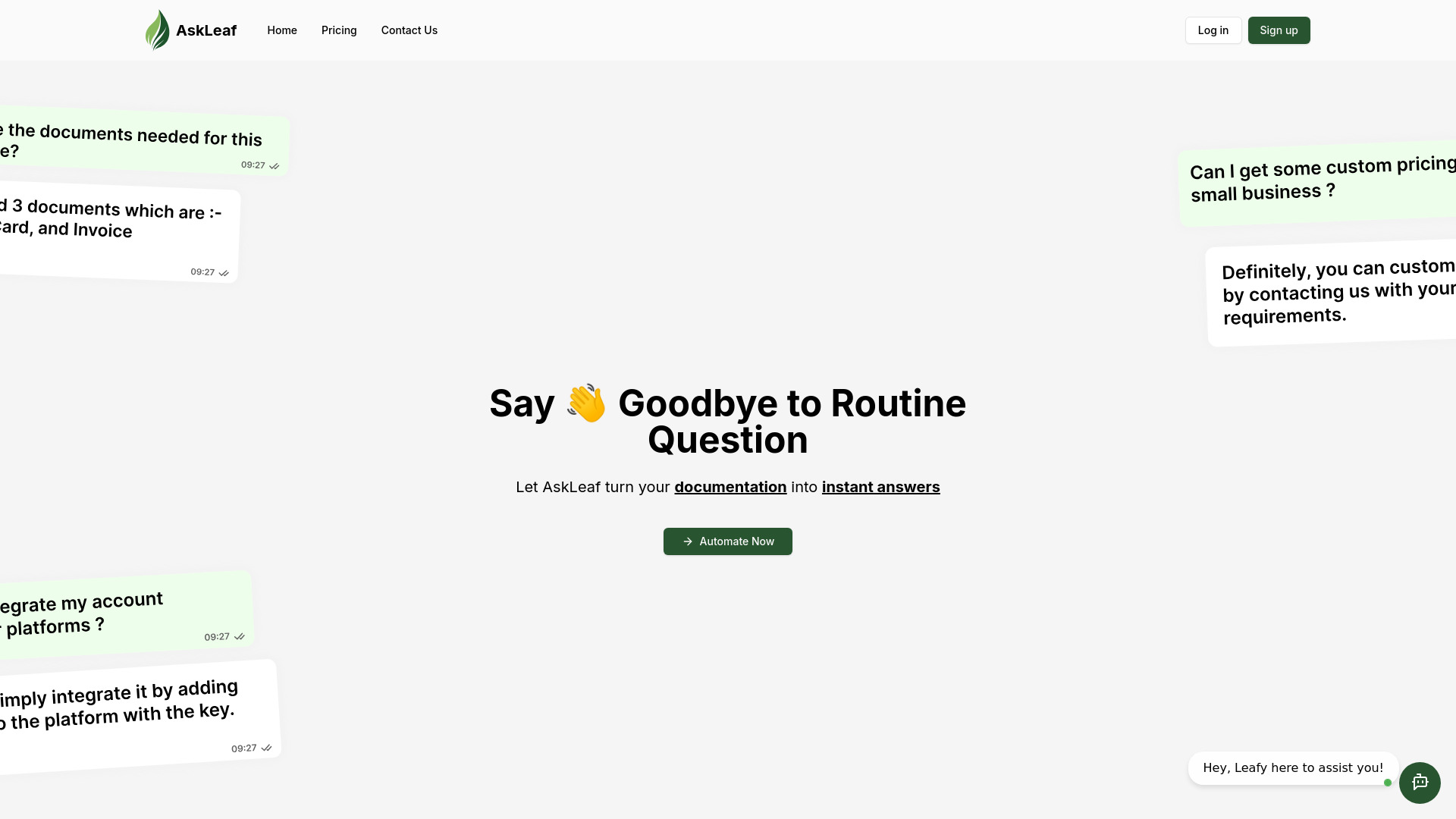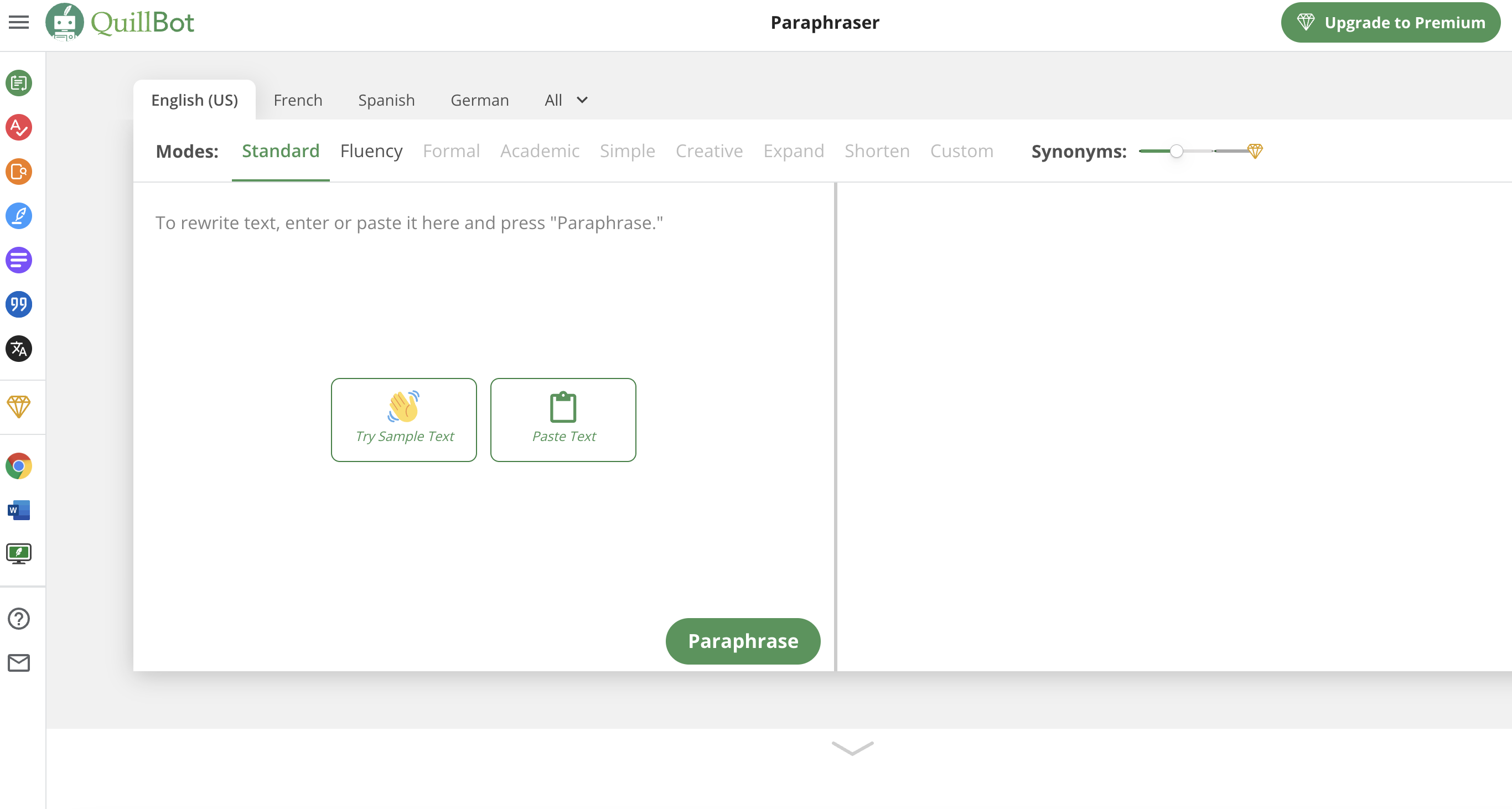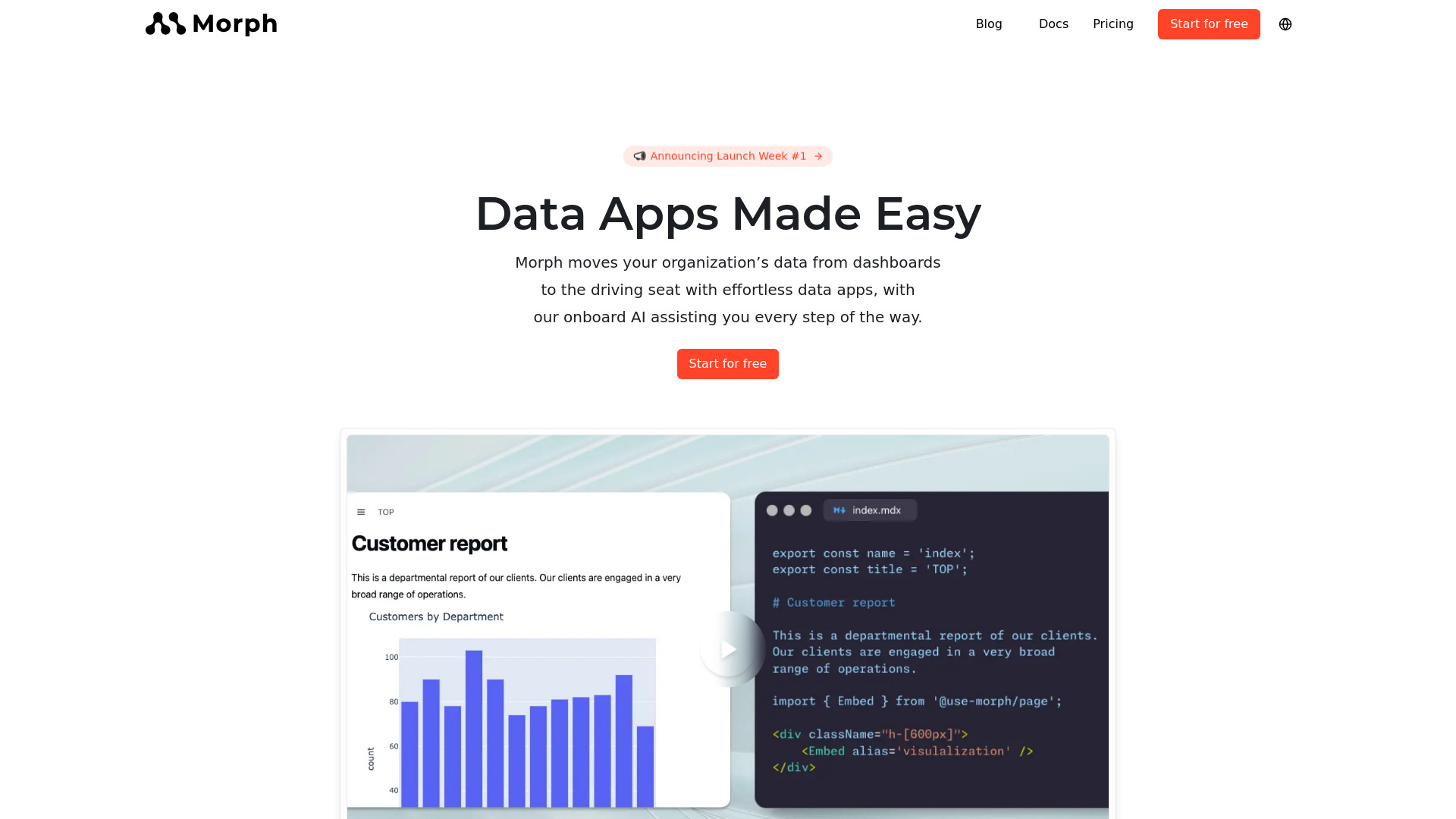Web Scraping
Web scraping in AI involves extracting data from websites using automated tools. AI enhances this by employing natural language processing and machine learning to interpret and classify data more effectively. Applications include market research, sentiment analysis, and competitive analysis. Benefits include efficiency and data scalability, while challenges include legal issues, data ethics, and handling dynamic web content.
Primary AI
Top Job for This Category
Most Commonly Used Task
Core Features
Automated data extraction
Handling complex web structures
Support for multiple programming languages
Ability to bypass anti-scraping measures
Data cleaning and validation tools
Integration with machine learning models
Scheduling and monitoring capabilities
Use Cases
Data collection for market analysis
Sentiment analysis of customer reviews
Competitor price tracking
Content aggregation for research
Lead generation for sales
Trend monitoring in social media
Most Helpful AI's
Best Fit Jobs For Web Scraping
Primary Tasks For Web Scraping
| # | Task | Popularity | Impact | Follow |
|---|---|---|---|---|
| 1 |
🤖
Task automation |
0% Popular
|
87%
|
|
| 2 |
⚙️
Workflow automation |
0% Popular
|
85%
|
|
| 3 |
✍️
Text rewriting |
0% Popular
|
87%
|
|
| 4 |
📊
Spreadsheet tasks |
0% Popular
|
78%
|
|
| 5 |
🌐
Website building |
0% Popular
|
82%
|
|
| 6 |
🔍
Search engine |
0% Popular
|
85%
|
|
| 7 |
📝✨
Text summarization |
0% Popular
|
87%
|
|
| 8 |
🐍💻
Python coding assistance |
50% Popular
|
82%
|
|
| 9 |
🤖
Business automation |
50% Popular
|
85%
|
|
| 10 |
🛍️
Shopping assistance |
0% Popular
|
85%
|
|
| 11 |
📧
Email outreach |
0% Popular
|
78%
|
|
| 12 |
⚙️
Website optimization |
50% Popular
|
85%
|
|
| 13 |
💻
Code snippets |
0% Popular
|
75%
|
|
| 14 |
🔍
SEO content |
50% Popular
|
78%
|
|
| 15 |
🗣️➡️📝
Speech to text |
0% Popular
|
87%
|







